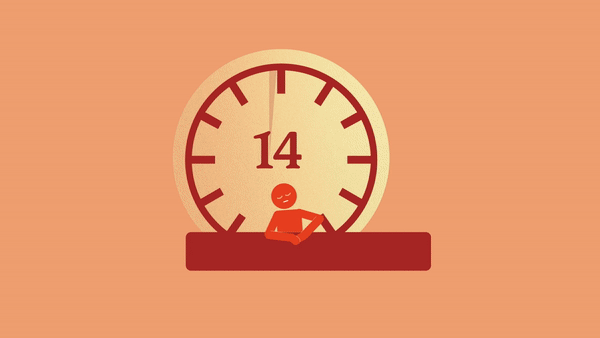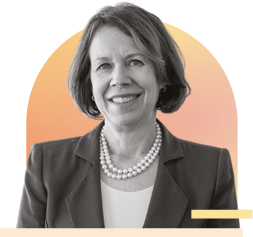This website uses cookies so that we can provide you with the best user experience possible. Cookie information is stored in your browser and performs functions such as recognising you when you return to our website and helping our team to understand which sections of the website you find most interesting and useful.

The Night & Day Impact of Insomnia
For people with trouble sleeping, it’s more than just tossing and turning at night. It’s also the impact on the day – from relationships, work, mental health and more. To understand the hidden toll of insomnia, The Alliance for Sleep and Idorsia conducted one of the largest U.S. surveys of people with trouble sleeping and healthcare providers. The results highlight the obstacles patients face in getting treatment, as well as the insomnia conversation gap between patients and healthcare providers that may prevent millions from getting the help they need.

“The hidden toll that insomnia has on individuals is much larger than one may think. From impacting relationships and the workplace, insomnia can lead to trouble in the night and the day”

Ruth Benca, MD, PhD,
Co-chair of The Alliance for Sleep
Want & Frustration
Desperate for Solutions

66%
don’t think current treatment
options are able to help
improve their trouble sleeping
70%
are desperate to find a solution
that helps them get quality sleep and fully
function the next day
Billions Spent Trying to Improve Sleep

In the past year, people with trouble sleeping spent an average of
$285 on
products
or sleep aids they believed would improve their sleep, not including mattresses.
That adds up to approximately
$7.125 billiona
a year in the U.S. alone.
Willing to Give Up a Lot for Quality Sleepb

Night & Day
The Toll of Lost Sleep

struggles
with friends or family
When Struggling with Sleep, People Feel …


Employed people with trouble
sleeping estimate they lose
8 hours
of work a week, on average, due to
their trouble sleeping.
That turns into
416 hours
lost a year per employee
in the U.S., or …
6.55 billion hoursc
total across the country.
Moments

37%
canceled plans
at the last minute
36%
got into an argument
with their significant other,
family member or friend
32%
reacted
inappropriately
to a situation (e.g.,
overreacted, laughed
during a serious situation)
32%
forgot an appoinment
or daily activity
22%
fell asleep during a
meeting
or function
21%
forgot an important
milestone
(e.g., birthday, anniversary)
Disconnect & Dialogue
Insomnia Conversation Gap
Agree

![]() Primary care physicians and people with trouble sleeping agree that
Primary care physicians and people with trouble sleeping agree that
Sleep should be one of the pillars of health, along with diet and exercise
98% of primary care physicians
91% of people with trouble sleeping
Insomnia should be treated as a distinct medical condition, regardless of contributing factors
83% of primary care physicians
78% of people with trouble sleeping
Disagree

But they disagree on how often sleep is addressed during routine visits
66% of primary care physicians say they frequently ask about sleep
… But only 27% of people with trouble sleeping report that their doctor always asks about their sleep
Speak Up

Yet people with trouble sleeping aren’t communicating their desperation
57% have not spoken to their doctor about their trouble sleeping e
53% who are desperate to find a solution have not talked to their doctor e
Stigma Around Treatment

66%
of those who take or have taken prescription sleep medication
believe there is a stigma
Myths & Facts
Knowledgeable About Sleep

74%
of people with trouble sleeping say they are very or somewhat knowledgeable about sleep and insomnia. But, many believe common myths.
Myths Busted f

Your body can’t get used to functioning on less sleep
yet 63% believe it can
All prescription sleep medications do not work the same way
yet 44% believe they do
Naps don’t make up for loss of sleep during the night
yet 61% believe they do
You can’t make up for lost sleep on another night
yet 43% believe you can
Footnotes
a. Calculation: $285 spent per person per year (from survey) multiplied by 25 million people with insomnia in the U.S. (source: Bhaskar S, Hemavathy D, Prasad S. Prevalence of chronic insomnia in adult
patients and its correlation with medical comorbidities. J Family Med Prim Care. 2016;5(4):780-784. doi:10.4103/2249-4863.201153)
b. Quality sleep is defined as at least seven hours of uninterrupted sleep nightly
c. Calculation: 8 work hours lost per person per week (from survey) multiplied by 52 weeks in a year and then 15.75 million employed people with trouble sleeping in the U.S. (source: 25 million people with insomnia per Bhaskar S, Hemavathy D, Prasad S. Prevalence of chronic insomnia in adult patients and its correlation with medical comorbidities. J Family Med Prim Care. 2016;5(4):780-784. doi:10.4103/2249-4863.201153) multiplied by 63% (employed, from survey))
d. Of those not diagnosed with insomnia
e. That helps them get quality sleep and fully function the next day
f. Percentages include those who falsely believed or are not at all sure
References
1. Data on File. Wake Up America Survey Results. Idorsia. 2021
2. Bhaskar S, Hemavathy D, Prasad S. Prevalence of chronic insomnia in adult patients and its correlation with medical comorbidities. J Family Med Prim Care. 2016;5(4):780-784. doi:10.4103/2249-4863.201153
3. Sleep Deprivation and Deficiency, NHLBI, NIH. (2021). https://www.nhlbi.nih.gov/healthtopics/sleep-deprivation-and-deficiency
4. Treating insomnia with medications. Stanfordhealthcare.org. https://stanfordhealthcare.org/medical-conditions/sleep/insomnia/treatments/treatinginsomnia-with-medications.html. Published 2021. Accessed November 18, 2021.
5. Ochab JK, Szwed J, Oleś K, Bereś A, Chialvo DR, Domagalik A, et al. (2021) Observing changes in human functioning during induced sleep deficiency and recovery periods. PLoS ONE 16(9):
e0255771. https://doi.org/10.1371/journal.pone.0255771
2021 Methodology Statement
The Wake Up America: The Night & Day Impact of Insomnia Survey was conducted online within the United States by The Harris Poll on behalf of Idorsia from September to October 2021 among 300 Primary Care Physicians (PCPs), 152 Psychiatrists, and 1,001 U.S. adults ages 18+ who have been diagnosed with insomnia by a healthcare provider or who have experienced difficulties sleeping for a period of time (i.e., patients with sleep difficulties). Results for each audience were weighted where necessary to bring them into line with their actual proportions in the population.
For complete research method, including weighting variables and subgroup sample sizes, please contact [email protected].
